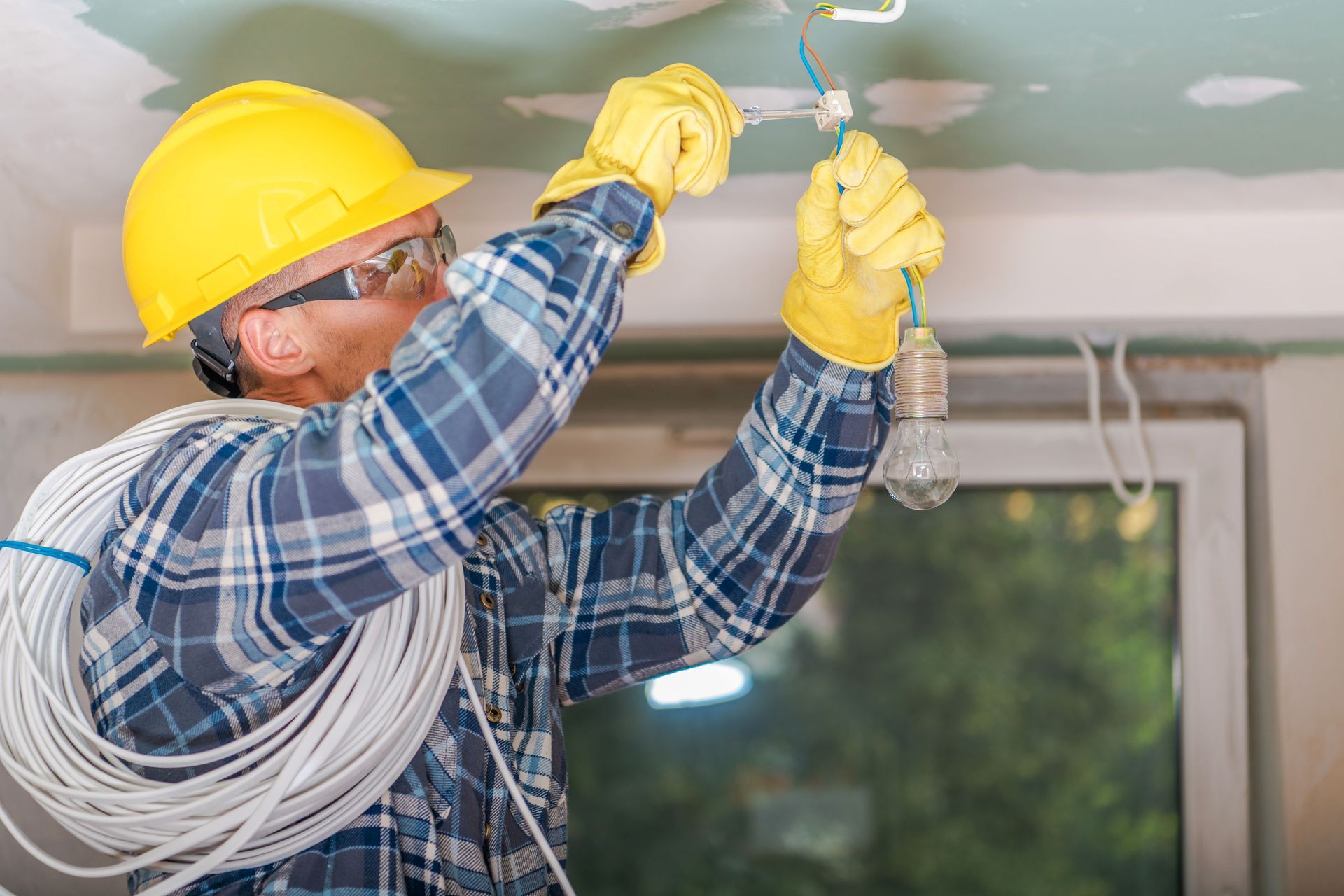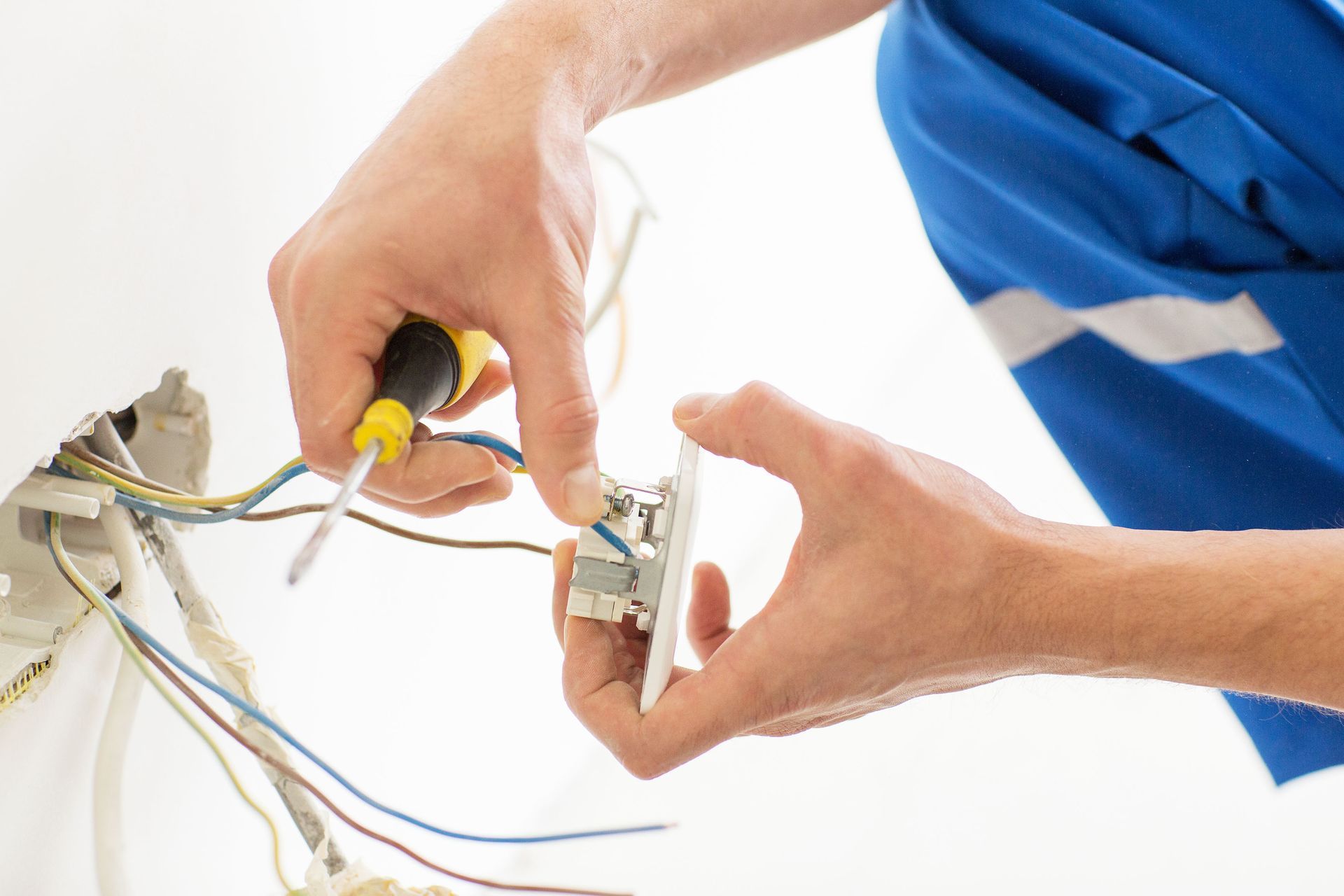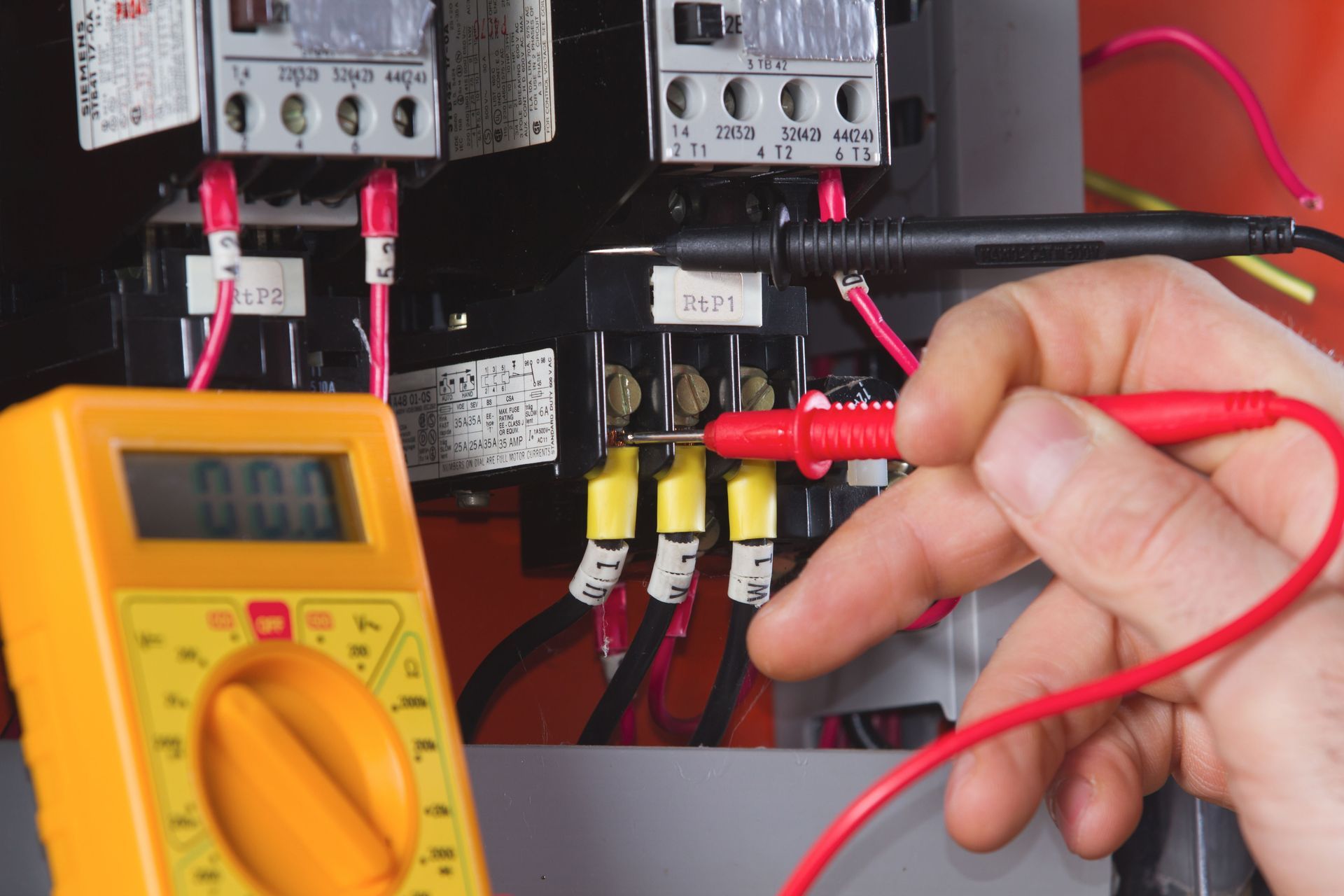October 25, 2025
Many older homes still operate with outdated electrical systems that were never designed to handle today’s modern power demands. These aging systems can pose serious safety risks and lead to frequent electrical malfunctions if not properly maintained or upgraded. Consulting a local residential electrician is essential for identifying potential hazards, improving system efficiency, and ensuring your home meets current safety standards. As technology continues to evolve, recognizing the signs of electrical strain becomes increasingly important for maintaining a safe and functional living environment.
Flickering or Dimming Lights
When lights flicker or dim unexpectedly, it could signify overloaded circuits. Such overloads occur when more electrical current passes through the wires than they are designed to handle, a common issue in homes with outdated systems. According to This Old House, older homes often operate on 60 amp to 100 amp service, which may not suffice for modern demands. A local residential electrician can assess the situation, determining if an upgrade in your electrical service is necessary to handle the higher loads effectively.
Flickering lights may also be attributed to aging or damaged wiring. Over time, insulation can degrade, and wires can become brittle, posing a risk of electrical faults. In older homes, wiring might not be up to modern standards, making it susceptible to failures. An experienced electrician can inspect all wiring, replacing any that is no longer safe or efficient.
Loose connections are another frequent culprit behind dimming and flickering lights. These can occur when electrical wires are not secured properly to fixtures or within junction boxes. Even minor vibrations or the movement of surrounding structures can weaken these connections over time. When connections are loose, it results in intermittent contact, causing lights to flicker. A local residential electrician has the expertise to trace and secure these connections, restoring stability to your lighting system.
Noticing Frequent Circuit Breaker Trips
A circuit breaker that frequently trips is a notable sign of an overloaded circuit. This often occurs when the demand on an electrical system exceeds its capacity, a common issue in aging homes. With most older homes designed for lesser gadgetry, the uptake in technology in households pushes circuits beyond their limits. Electricians can identify whether redistributing the load or adding new circuits would resolve the issue. Regular tripping is a safety feature intended to prevent overheating and potential fires, thus signifies the need for professional intervention.
Outdated electrical panels are a common culprit behind frequent breaker trips in older homes. Many of these panels were installed decades ago and cannot safely handle the increased electrical loads required by modern appliances and devices. Consulting a local residential electrician ensures a thorough assessment of your panel’s capacity and provides expert recommendations for safe upgrades or replacements. By modernizing your electrical panel, you enhance your home’s safety, efficiency, and ability to meet today’s demanding power needs.
Short circuits are pivotal reasons behind frequent breaker trips. They occur when a hot wire touches a neutral wire, causing a surge of electricity that the system cannot handle. In older homes, insulation tends to deteriorate, increasing short circuit risks. An electrician can detect and fix these short circuits, often replacing damaged wiring to secure the home’s entire electrical supply. By addressing short circuits, you mitigate the risk of fire and ensure more reliable power throughout your residence.
Burning Smell or Scorched Outlets
If you detect a burning smell emanating from outlets or electrical fixtures, it’s imperative to act swiftly. Such odors ought to be seen as serious red flags pointing toward electrical issues. Often, these odors result from wiring and electrical components overheating, potentially indicating an impending fire hazard. Professional diagnosis and repair are critical in resolving whatever underlying electrical issues are at play.
Similarly, scorch marks or discoloration around outlets signal the need for urgent attention. These marks are usually results of electrical arcing or overheating, which occur when connections are faulty. Scorched areas around outlets indicate high resistance and impending failure that can lead to severe electrical fires. The expertise of a local residential electrician will ensure thorough inspection and necessary replacement of compromised components.
Faulty wiring is an underlying cause of both burning smells and scorched outlets. As insulation degrades or wires become damaged, they are prone to overheating under electrical load. Electricians can conduct comprehensive assessments, particularly focusing on areas with burning or scorching signs. By diagnosing and replacing faulty wires, they ensure long-term safety and functionality.
Sparking or Buzzing from Outlets
Frequent sparking from outlets is a serious warning sign that should never be ignored. This issue often stems from loose connections or deteriorating internal wiring, both of which can quickly escalate into electrical fires if left unresolved. In many older homes, outdated wiring or worn infrastructure is the primary cause of such problems. Consulting a local residential electrician ensures that these hazards are promptly identified and corrected, protecting your home and family from potential electrical dangers.
Electrical buzzing is an auditory way of signaling potential issues with your home’s wiring. Often caused by loose prongs or faulty equipment, buzzing can be the precursor to more dangerous situations such as electrical shock or fire. The sounds are often most noticeable when the system's capacity is being stretched, a reality that is common in outdated systems underscoring the need for service upgrades. Having an electrician conduct a noise-source investigation is a protective measure.
Buzzing and sparking often suggest wire overheating as a contributing factor. This could result from poor insulation or excessive loads on the wiring. Older homes operating on outdated amperage limits, per observations from sources like This Old House, are particularly susceptible. Professional electricians can determine if wires need replacing or if more comprehensive re-wiring of the home is warranted.
Overusing Extension Cords and Power Strips
Older homes often have layouts and circuit designs that no longer accommodate today’s electrical device proliferation. This inadequacy necessitates using extension cords and power strips to meet contemporary demands. Such fixes, however, are only temporary and could pose risks if overloaded. Engaging a local residential electrician allows your home’s design to be modernized, boosting both its efficiency and safety to current standards.
Overusing extension cords and power strips can create serious electrical hazards, including overheating and potential fire risks. Homes with too few outlets often rely heavily on these temporary solutions, which can overload circuits and strain the electrical system. Consulting a local residential electrician allows homeowners to assess their current electrical usage and identify safer, long-term solutions. With professional guidance, new wiring systems and additional outlets can be installed to minimize dependence on outdated setups and improve overall household safety.
Addressing outlet shortages by integrating new, appropriately placed outlets can transform a home's accessibility and efficiency. Assuming this involves circuit redesign or enhancement, a local electrician’s expertise ensures installations adhere strictly to safety codes. Properly integrated outlets reduce the necessity for extension cords, creating a more balanced and secure electrical environment. An electrician can draft a plan to optimally determine the number and location of new outlets.
Regular checks and balances are critical to ensuring the safety and efficiency of the electrical systems in older homes. By being aware of these tell-tale signs, homeowners can seek timely assistance from professional residential electricians, preventing potential hazards and improving the overall functionality of their homes. Understanding the limitations of older infrastructures emphasizes the value in proactive maintenance. To upgrade your home's electrical systems, contact Nebraska Electric.




